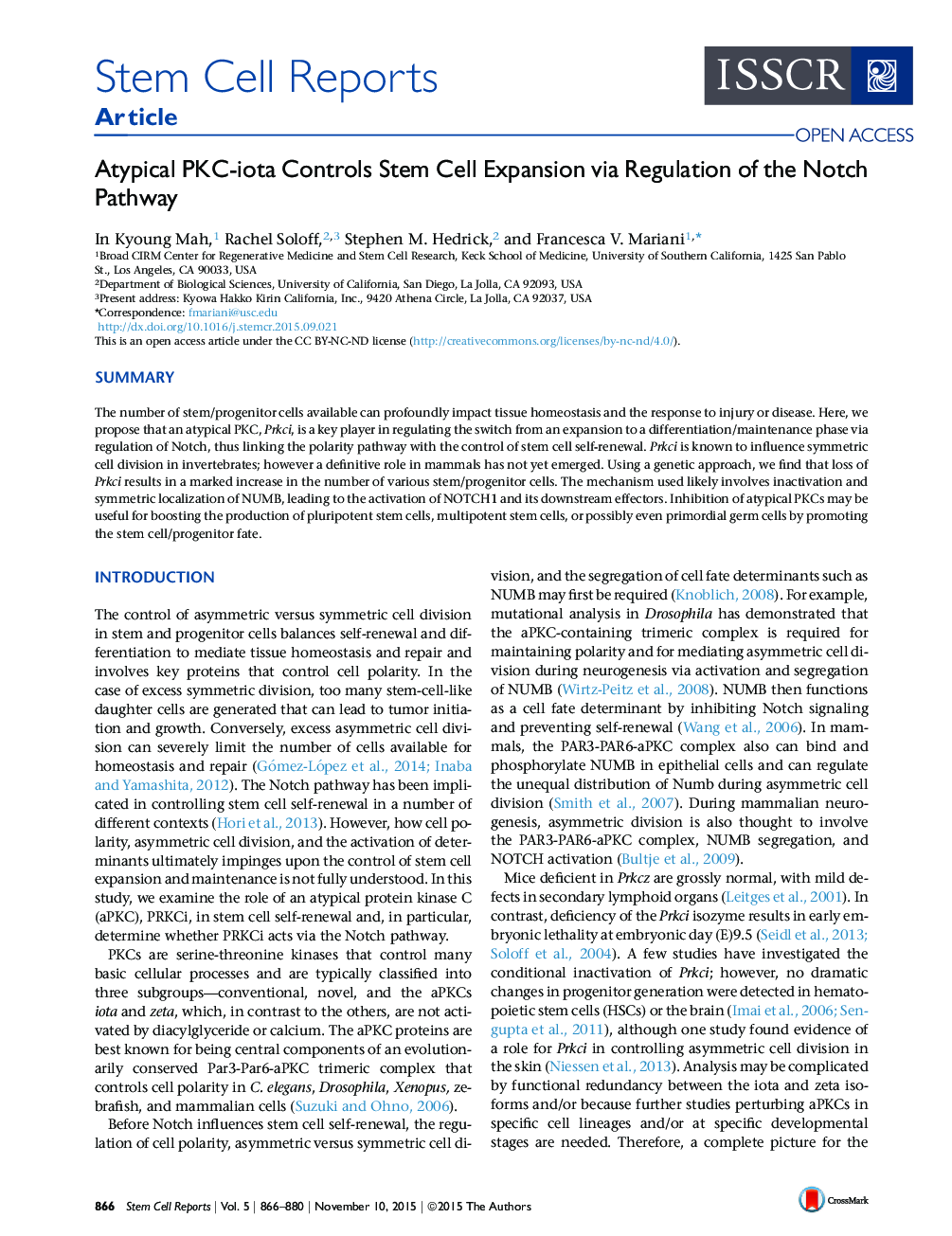| Article ID | Journal | Published Year | Pages | File Type |
|---|---|---|---|---|
| 2093758 | Stem Cell Reports | 2015 | 15 Pages |
•PRKCi, a polarity protein, regulates expansion of various stem/progenitor cells•PRKCi acts in this capacity via a Notch-dependent pathway•Thus, PRKCi acts as a link between polarity and stem cell self-renewal•Inhibition of aPKCs may be generally useful for expanding progenitor populations
SummaryThe number of stem/progenitor cells available can profoundly impact tissue homeostasis and the response to injury or disease. Here, we propose that an atypical PKC, Prkci, is a key player in regulating the switch from an expansion to a differentiation/maintenance phase via regulation of Notch, thus linking the polarity pathway with the control of stem cell self-renewal. Prkci is known to influence symmetric cell division in invertebrates; however a definitive role in mammals has not yet emerged. Using a genetic approach, we find that loss of Prkci results in a marked increase in the number of various stem/progenitor cells. The mechanism used likely involves inactivation and symmetric localization of NUMB, leading to the activation of NOTCH1 and its downstream effectors. Inhibition of atypical PKCs may be useful for boosting the production of pluripotent stem cells, multipotent stem cells, or possibly even primordial germ cells by promoting the stem cell/progenitor fate.
Graphical AbstractFigure optionsDownload full-size imageDownload as PowerPoint slide
